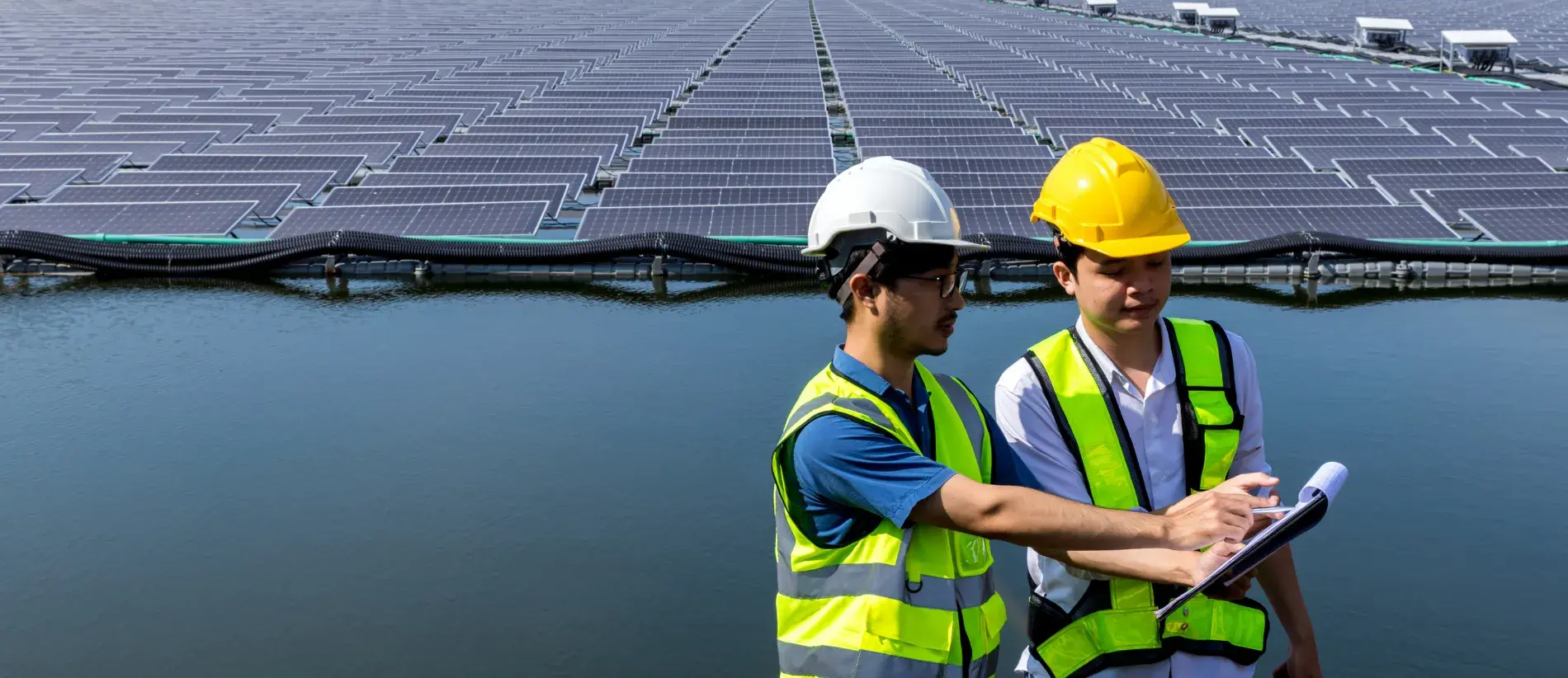Skip to main content

ARTICLES / OCTOBER 17, 2025
The scope of renewable energy in business sustainability
3 MIN READ
The Philippines' push for 40% renewable energy (RE) in its power mix by 2030 is transforming corporate energy strategies from voluntary sustainability measures into critical business decisions. In the context of Philippine companies, this transition represents both an opportunity for long-term competitiveness and a complex risk management challenge that requires careful navigation.
This sustainable effort is being driven by multiple converging factors that make renewable energy adoption both urgent and economically compelling. The government's recent approval of 141 new RE projects worth $70 billion in 2024 alone signals both the scale of this transition and the growing business opportunities it presents across several industries.
Government policies driving the transition
Republic Act No. 9513 (Renewable Energy Act of 2008) – Aims to incentivize renewable energy projects through tax rebates, net metering, and duty-free imports
Philippine Energy Plan (PEP) 2023 – 2040 – Details the comprehensive framework that targets 40% and 50% renewable energy share by 2030 and 2040, respectively in the country’s energy mix
The Philippine Energy Transition Program (PETP) – Includes the energy transition strategies in diversifying the country’s energy mix to be more sustainable
National Renewable Energy Program (NREP) – Outlines the country’s targets in promoting the prevalence of renewable energy in the country
Meeting ESG demands in global markets
Sustainability performance has become a key differentiator in attracting investment and maintaining supply chain relationships. Companies lagging in clean energy adoption risk exclusion from ESG-focused investment portfolios and potential penalties under evolving SEC guidelines.
However, certain challenges in adopting renewable energy include foreseeability issues and complex permitting processes with solar and wind power, necessitating backup systems. The limited grid infrastructure available in the country cannot guarantee a stable allocation of renewable energy generation. Many businesses also face financing barriers despite the growing availability of green loans and investment options. These hurdles faced by an enterprise interested in renewable energy can ultimately delay its project timelines.
Paving the way for energy resilience
Companies that cautiously address these challenges can gain competitive advantages, as stable energy pricing from renewable sources, compared to volatile fossil fuel markets, enhances the efficiency of cost forecasting. Moreover, strong sustainability credentials enhance access to global markets and investment capital, while ensuring compliance with increasingly stringent regulations. Perhaps most importantly, a well-executed energy transition builds long-term resilience against energy market fluctuations and positions companies as leaders in the new energy economy.
As renewable energy becomes fundamental to business resilience, Philippine enterprises must view their transition strategies through both operational and risk management lenses. Organizations that proactively address these challenges will be better positioned to capitalize on cost savings, meet evolving compliance requirements, and strengthen their competitive position in an increasingly sustainability-driven marketplace.
As your business embraces clean energy, Lockton Philippines can help you protect your investments and manage emerging risks in a changing energy landscape. Let’s build a sustainable future together.

by Edel Gregorio
Vice President & Head Business Development
